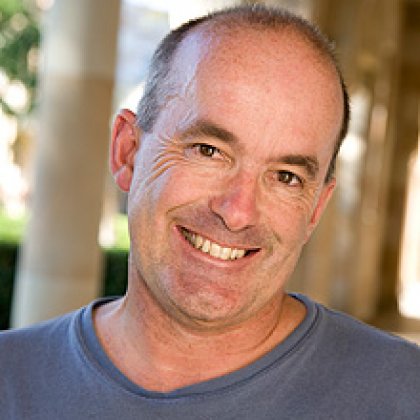
UQ’s Heron Island Research Station in the Great Barrier Reef reopens today (Friday, February 20), following a $9 million upgrade.
The refurbishments come after a fire destroyed most of the station in March 2007.
UQ Centre for Marine Studies director Professor Ove Hoegh-Guldberg said having a research station in one of the healthiest parts of the Great Barrier Reef was an asset, not just to UQ, but also to researchers worldwide.
"This proximity enables researchers to explore coral reefs using the latest laboratory facilities and equipment while only being situated literally metres away from a living and breathing coral reef," he said.
"There are very few places in the world that have this type of access and sophisticated study platform.
"Investigators and students come here from all over Australia and the world."
Professor Hoegh-Guldberg said coral reefs were important to people in Australia and surrounding countries due to their ability to support industries like tourism and fisheries.
"Over $6 billion flows into the Queensland economy each year from tourists coming to see the Great Barrier Reef, for example," he said.
"Unfortunately coral reefs both here in Australia and all over the world are being affected by human activities such as declining water quality, over-fishing and global warming. This has generated an imperative for research."
Research at Heron Island has already led to major discoveries, including medicinal properties associated with cone shells, and using sea sponges and abalone to better understand evolution.
Professor Hoegh-Guldberg’s own research area relies heavily on studying the reef at close hand.
"My research group has focused on global climate change, exploring how corals and other organisms are responding to increase the temperatures and growing ocean acidity," he said.
"This work has turned out to be fundamentally important to our understanding how coral reefs, the most biodiverse marine ecosystem in the ocean, are going to respond to increased levels of atmospheric carbon dioxide."
Heron Island Research Station is one of the oldest marine research stations in the world, having been in operation for more than 50 years.
Thanks to the reconstruction, the station now includes seven research labs, three teaching labs, two instrument rooms, aquaria infrastructure and seminar and computer rooms, along with an 80-bed student accommodation block.
It has extensive facilities for accommodating undergraduates including teaching laboratories and dorm accommodation.
Media: Professor Hoegh-Guldberg (07 4978 1399, p.fogarty@uq.edu.au) or Tegan Taylor at UQ Communications (07 3365 2659).
Listen to podcasts of speeches from the opening:
- Professor Paul Greenfield, Vice-Chancellor, The University of Queensland
- John Johansen, General Manager, Voyages Heron Island Resort
- Judy Stewart, Managing Director, Great Barrier Reef Foundation
- The Honourable Rod Welford, MP, Minister for Education and Training and the Arts
Backgrounder: About Heron Island Research Station
Located at the southern end of the Great Barrier Reef National Park, Heron Island Research Station (HIRS) is the largest and most sophisticated marine research station in Australia, providing research laboratories within metres of Heron Reef.
The research station is located at the leeward end of a coral cay on a 10 x 5 kilometre platform reef, 80 kilometres east of Gladstone and 600 kilometres north of Brisbane.
Heron Reef is home to approximately 60 percent of the fish species and 72 percent of the coral species found on the Great Barrier Reef, as well as the cay's rich terrestrial flora and fauna.
The research station is one of only four centres of excellence recognised in the global Coral Reef Targeted Research Program funded by the World Bank.
It was established more than 50 years ago and is a cornerstone of the Australian Research Council’s Centre of Excellence in Coral Reef Studies.
Heron Island Research Station’s official re-opening follows a $9 million reconstruction of its teaching and research facilities and student accommodation.
It is recognised as one of the key facilities for research as well as undergraduate teaching and training. Many high schools also come to Heron Island to teach their students about coral reef ecosystems.


